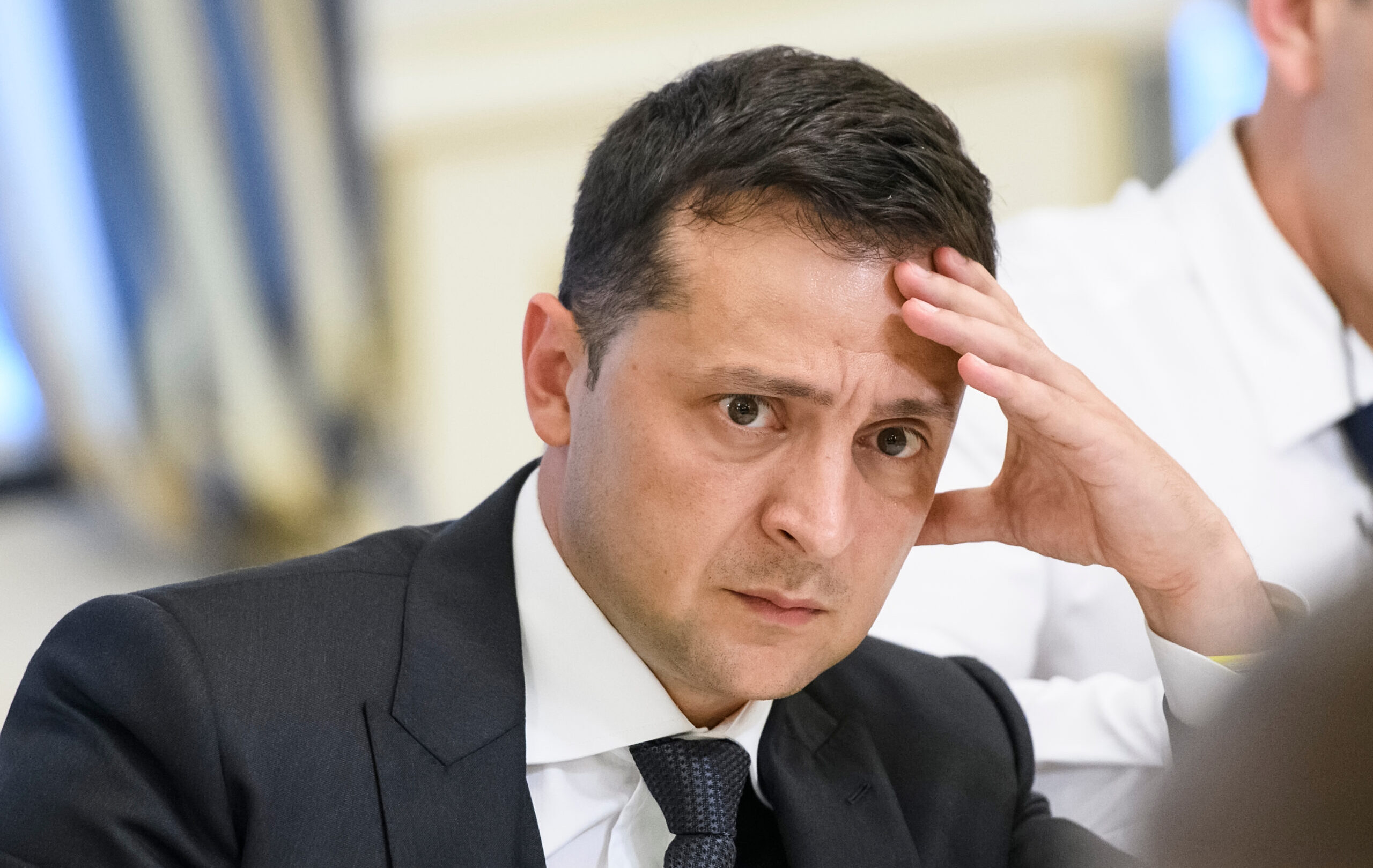After attending the UN General Assembly high-level week, U.S. President Joe Biden and Ukraine’s President Volodymyr Zelensky will head to Washington where they will discuss Zelensky’s request for permission to use Western long-range missiles to strike deeper inside Russian territory. The Biden administration has asked Zelensky for an accounting of how such strikes would advance a Ukrainian military victory.
Zelensky has said that his Ukrainian victory plan is now complete and promised that his presentation will include the requested accounting, as it lays out what is required to accomplish a series of identified steps to victory. Although the details of the plan have not been revealed, the press has reported an outline of the plan. The outline of the Ukrainian victory plan seems to lack both victory and plan.
Zelensky says the scheme is a “bridge to strengthening Ukraine” in order to “contribute to more productive future diplomatic meetings with Russia.” On September 15, he told CNN that the plan is to “strengthen [Ukraine] before peace summit to be in a strong position because diplomatic decisions or solutions, they’re good when you’re strong.”
He says also that, for the plan to succeed, it needs to be approved and implemented before Biden leaves office. “The plan relies on quick decisions of our partners, which should be taken from October to December,” he said. Fearing a change in policy under a potential Trump administration, Zelensky says that the plan needs to be implemented “today, while all the officials who want the victory of Ukraine are in official positions.”
Zelensky told CNN that his plan is built on four points and a fifth post-war point, each of which is meant to contribute to victory by making Ukraine “very strong” so that they are “ready for the strong diplomacy.” Those points include aspects of “security,” “military support,” “geopolitical place” and “economic support,” with special mention of the role of the Kursk offensive.
But the points as suggested seem to be better described as a repetition of Zelensky’s oft-repeated demands than as a plan, and to hold little hint of how they advance the hope of victory.
The geopolitical facet seems to involve pressing Biden for “an official invitation to join NATO” and Europe for “a clear pathway to European Union membership.” But it is not clear how either geopolitical point advances the cause of victory. Russia has never opposed Ukrainian membership in the EU, and they will never permit Ukrainian membership in NATO. Indeed, the Istanbul draft peace agreement stipulated that Ukraine was free to join the EU but that they would not be allowed to join NATO. EU membership contributes nothing new, and NATO membership remains a nonstarter. Russia went to war to prevent Ukraine from joining NATO; they are not going to end the war to allow it.
In December 2021, Russia presented the U.S. and NATO with a proposal on security guarantees. Failure to successfully negotiate them would result in “military-technical measures,” which, it turned out, were the invasion of Ukraine. The key demand was that NATO not expand into Ukraine. “As far as I remember, they started the war because of this,” Zelensky has said. So an official invitation to join NATO does not advance a goal of ending the war; it is the surest way of ensuring its continuation.
Military support means a continuous supply of advanced weapons, including long-range missile systems and the freedom to use them without restrictions. Zelensky told CNN that it is not only about “strong military support” being “available” to Ukraine but also “that we have to be free how to use one or another item.” Far from a step toward ending this war, fulfillment of this point has been defined by Russia’s President Vladimir Putin as expanding the war by “changing the nature of the conflict” so “ that NATO countries…are at war with Russia.”
As for security guarantees, the West has had a harder time agreeing to them than has Russia. Russia has agreed to various security arrangements, including Ukraine receiving security guarantees from various countries. Zelensky previously confirmed that Ukraine was prepared in Istanbul to agree to exchange a guarantee of “neutrality” for “security guarantees for Ukraine.” It is the West that has been reluctant to provide Ukraine with these commitments to ensure their security out of concern for direct confrontation with Russia.
Aside from economic support, which for the Russians is probably neither controversial nor provocative, that leaves the role of the Kursk offensive. Zelensky says that the war will only end when Ukraine is “very strong. And the other side knows that you’re very strong.” That can only happen, Zelensky told CNN, when the “Russian people are in danger,” when they “understand the price of war.” He says that it is only when Ukraine is “strong” that Putin “will sit and negotiate.”
That is the role of the Kursk offensive, which had three goals: to acquire land to trade during negotiations, to make the Russian people “understand the price of war,” and to divert Russian troops from the Donbas front to Russia.
Zelensky told CNN that the “idea” behind the Kursk invasion “was to move some Russian forces there.”
And I think,” he added, “it was right idea.”
It may have been the right idea, but it did not work. It has made Ukraine weaker, not stronger. By most accounts, Russia has stopped the advance of the Kursk invasion and taken some land back at an enormous cost in life and equipment for Ukraine while intensifying and accelerating the advance on Pokrovsk and into Donbas. Rather than weaken Russian efforts near Pokrovsk, it weakened Ukraine’s.
Subscribe Today
Get daily emails in your inbox
It also seems not to have affected Russians’ perception of or support for the war, and it has failed to advance negotiations for two reasons. First, Russia is unlikely to be pressured or tempted to negotiate a small piece of strategically noncritical land that is being temporarily occupied for a huge swath of very important land that it feels it went to war to protect and that it feels it is capable of holding.
The second is that the Kursk offensive manifestly did not improve the odds of negotiations. On the contrary, it scuttled them. Potential negotiations that could have prevented much suffering in Ukraine this winter with an agreement by both sides to cease strikes on each other’s energy and power infrastructure, per a Washington Post report, “were derailed by Ukraine’s surprise incursion into Russia’s western Kursk region.” Future peace talks to end the war have also been made less likely by the Kursk invasion.
Zelensky’s four points compose more of a reiteration of his wish list than they do a plan. And there is nothing in those four points that points to enhanced chances of negotiations or victory. Unless the full disclosure of the details alters the appearance of the points, there will be nothing in Zelensky’s “Ukrainian victory plan” that contributes to victory or constitutes a plan.




























































